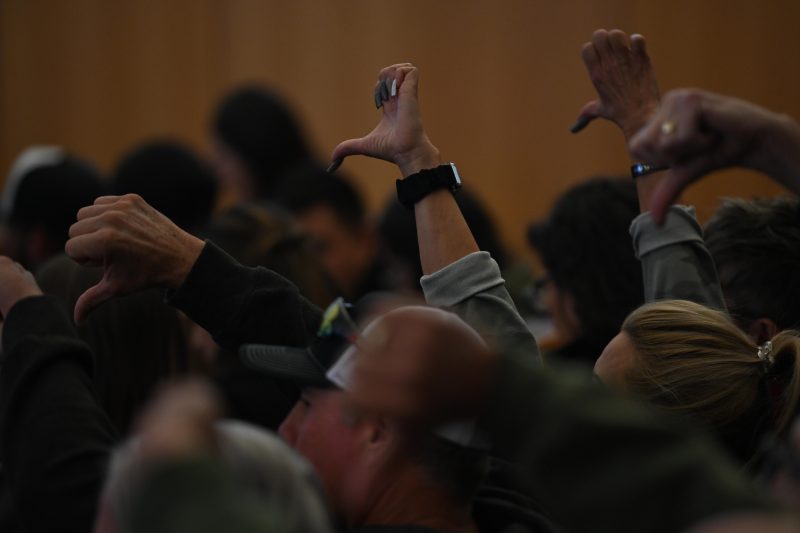Fifty years ago, the United States was in crisis. American soldiers had been pulled out of South Vietnam, their efforts to repel communism in the country unsuccessful. President Richard M. Nixon had started his second term in office after winning a landslide victory, but hearings into the break-in at the Watergate complex were already underway. Within a year, Nixon would resign.
By 1977, though, the country had turned something of a corner. Jimmy Carter was president, with an approval rating north of 50 percent as measured by Gallup that November. The economy was still wobbly, though the country had emerged from recession. Most importantly, America had survived the test posed by the Nixon presidency.
That same Gallup poll found that Americans were mostly satisfied with American democracy. Given a zero-to-10 scale, from extremely dissatisfied to extremely satisfied, most Americans rated our political system at 7 or above.
By 2022, YouGov polling found that only 3 in 10 Americans were that satisfied with our democracy. And in YouGov’s most recent polling, conducted last month, that had fallen to 2 in 10. (Some totals on the graph below exceed 100 percent because of rounding.)
There are, of course, two ways in which Americans think democracy is under threat, each upheld by one of the two major parties.
Republicans believe that voting results are suspect, that elections cannot be trusted to reflect the will of the electorate. This idea has been stoked without pause by former president Donald Trump for more than three years, in accordance with his desire not to be seen as having lost the 2020 presidential election. That it exists without any supporting evidence is largely irrelevant; when it is noted that there is no evidence of any significant fraud in the election, the goal posts are simply shifted to suggest that the election was unduly influenced by the media or social media or Mark Zuckerberg. In July of last year, YouGov found that more than half of Republicans had absolutely no confidence that the 2020 election was conducted fairly.
Democrats believe democracy is under threat because Republicans believe democracy is under threat. More specifically, that Republican refusal to accept the results of fairly conducted elections threatens how the country allocates power. That concern among rank-and-file Republicans that elections are under threat will create political will to limit who is allowed to vote and how, in ways that will advantage their own power.
In 1977, there wasn’t much of a gap between the two parties in how satisfied they were with American democracy. Half of Democrats rated it at 7 or higher; slightly more Republicans did. Even last year, there wasn’t much of a divide. About 4 in 10 members of each party rated their satisfaction at 6 or above, though Democrats were more likely to express higher levels of satisfaction.
In 2023, though, Republican satisfaction tanked. Nearly as many Republicans said they were “extremely dissatisfied” with democracy — rating it at zero — as had rated democracy at 6 or higher the year prior. Democratic views didn’t change much at all.
What changed between the June 2022 poll and the June 2023 one? For one thing, Republicans again did worse than many of them expected in an election. In Arizona, baseless allegations about voter fraud again became a focus of agitation on the right, largely stoked by the losing gubernatorial candidate, Kari Lake.
Three-quarters of Republicans now rate their satisfaction with American democracy at 4 or lower. In 1977, only 16 percent of Republicans did.
The question that arises is how Americans would have considered our democracy not in 1977 but, instead, 50 years ago in 1973. Then, in that tumultuous year, would there have been similarly robust skepticism about how democracy was faring? Would Democrats have been unusually dissatisfied with how things were progressing? Is the comparison between 1977 and 2023 tainted a bit by our being in a moment of enduring crisis rather than just past one?
Perhaps. But that can’t give us much solace when we see how things have changed only in the past 12 months.





























